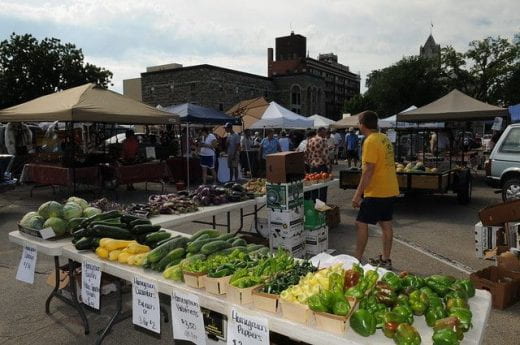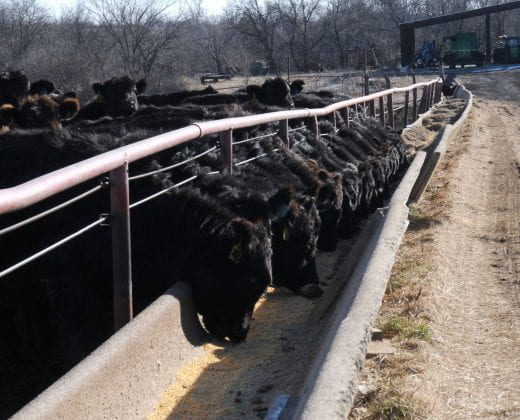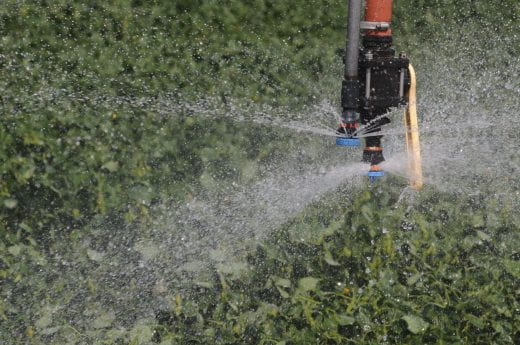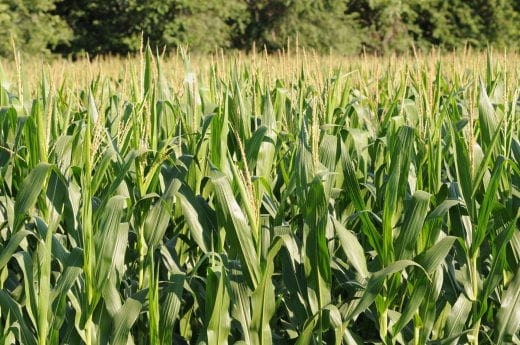Welcome to Better Kansas! Today I shed a little light on eggs and oats, taking a hike, taking care of yourself (if you don’t, who will?!), pawpaws and other horticulture topics, corn production and a new podcast devoted to managing weeds – yes, weeds. This is a small glimpse of what K-State Research and Extension across the state has to offer. Share on social media and subscribe! – Mary Lou Peter mlpeter@ksu.edu
Better Living, Better Communities
AS YOU CRACK EGGS FOR YOUR MORNING SCRAMBLE, HAVE YOU WONDERED WHAT THE WHITE SPOT ON THE YOLK IS? A recent You Asked It post from the Rapid Response Center explains that it’s there because the egg was not fertilized. That’s a good thing. There’s also an article on the history of oats. Incredible that humans were grinding wild oats to consume as far back as 32,000 years ago. I’ve never been a fan of hot cereal, although I know how good oatmeal is for us. But I do love granola that contains oats and oatmeal cookies are awesome, if that counts!? Take a look to learn more about these and other food-related topics.
SOME PEOPLE HEAR “TAKE A HIKE” AND THINK IT MEANS SCRAM! But it may carry a different, more literal positive meaning for so many of us largely house-bound because of the coronavirus pandemic. For that reason, I’m sharing a new resource, Take a Hike, produced by Kansas 4-H as a health and wellness project challenge. It has some great tips for young Kansans but also for anyone – adults included – who could benefit from getting outdoors, getting exercise and connecting with their community. Check with Kansas 4-H or your local K-State Research and Extension office to learn more about the Health and Wellness Challenge: Take a Hike and other 4-H projects.
Finally, to my friends, family and colleagues, if I say “take a hike,” I mean it in the most loving and caring of ways ;).
WHO’S TAKING CARE OF YOU? Whether you’re single and living alone or have a house full of toddlers, teens and in-betweens (you know … tweens), there are few times in recent memory that rival the stress so many are living in right now. And while you’re taking care of those around you in your family, friend and workplace sphere, who’s taking care of you? Take a little time and invest in your own well being by accessing a free K-State Research and Extension virtual session on Jan. 28, Who’s Taking Care of You? It’s one of a series of online educational programs titled Living Well Together launched late last year. Upcoming topics in February include A Parent’s Guide to Social Media (Feb. 4); Love Languages (Feb. 11); Make Active Habits Stick (Feb. 18); and Living Well With Diabetes (Feb. 25). Registration for the February programs is available online now. All sessions are recorded and available to those who register.
Better Farming, Ranching and Gardening
PAWPAWS ANYONE? I tasted pawpaws for the first time a couple of years ago. I can’t say I was inspired to go out and plant a pawpaw tree but it’s interesting to try something new. They’re native to eastern Kansas but apparently, I wasn’t the only one who hadn’t tasted one all those years. If you’ve tried them or not … or just want to learn more, check out Pawpaw Trees: A Native Fruit in a recent K-State Horticulture Newsletter. For those of you who ARE interested in growing them, the Kansas Forest Service has seedling trees to sell. Other newsletter topics touch on frost and its effect on fruit trees, American elm trees that are resistant to Dutch Elm Disease (research done at our own John C. Pair Horticulture Center), starting newly-planted trees off right, bird feeding, plus an item on using these winter months to plan your landscape design. Take a look.
THE NEW KANSAS CORN MANAGEMENT 2021 GUIDE is now available online, with research-backed information on planting practices, weed management, nutrient management, diseases, insect management, machinery and more. In just seven pages (eight if you count the authors’ names), it provides a quick overview for growers who are planning this important crop for the upcoming season. Kind of important for a state that ranked No. 5 out of all 50 states in overall area planted to corn for all purposes in 2018, according to Kansas Corn and the USDA.
But wait, there’s more. Next week I’ll share information for soybean growers.
WEEDS ARE A PERENNIAL PROBLEM FOR OUR NATION’S FARMERS, consistently biting into profits and adapting to obstacles humans put in their way. To keep crop producers up on the latest weed management information, K-State extension weed scientists teamed with their counterparts from the University of Missouri and North Dakota State University to offer the “War Against Weeds” podcast. This first podcast introduces us to the specialists who host it and their goals in producing it. They’re an engaging group. Listen in . This may just become the next Car Talk. Again, I digress!
_
For more resources and activities, contact the K-State Research and Extension office in your area. Check out our other blogs and subscribe to our weekly emails here: https://www.ksre.k-state.edu/news/blogs/



















